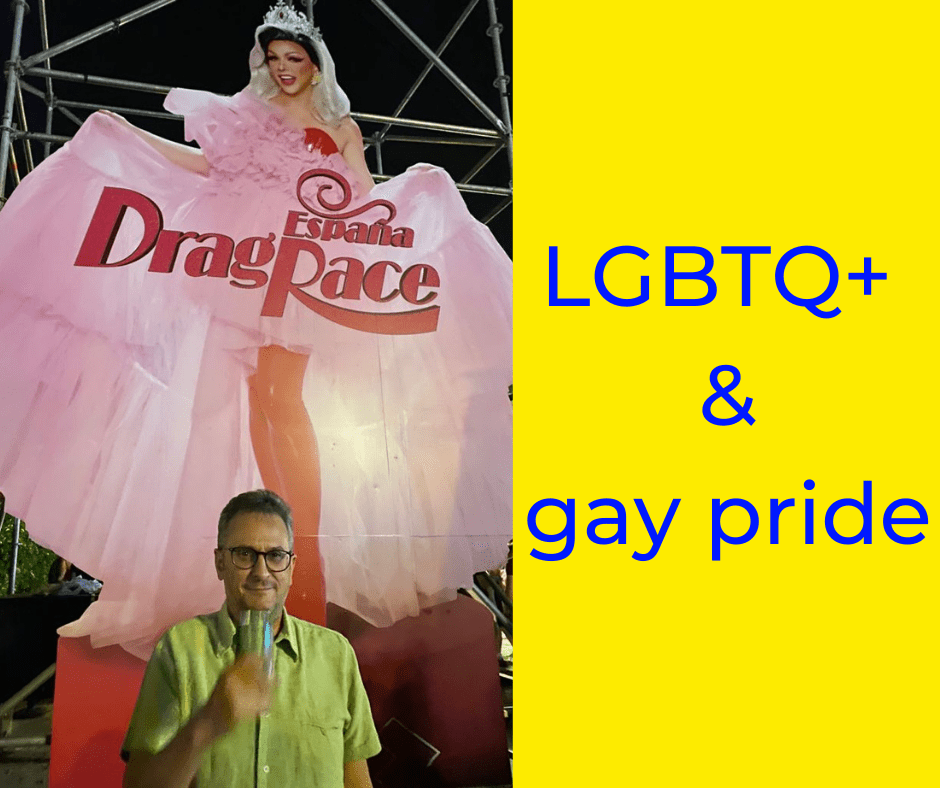
You’ll learn about the LGBTQ+ community so that you can understand the vocabulary, terms and abbreviations related to this topic.
Voice message from Romina from Paraguay
‘six’ episodes
Technical brewery vocabulary – not very useful for most listeners
Beer episode: https://inglespodcast.com/203
We are open to sponsorships from beer producers!
LGBTQ+ – “Queer Community” or “Rainbow Community”
L – Lesbian – A lesbian is a female homosexual: a female who experiences romantic love or sexual attraction to other females.
G – Gay – a term that primarily refers to a homosexual person or the trait of being homosexual. Gay is often used to describe homosexual males but lesbians may also be referred to as gay.
The word “gay” hasn’t always meant/doesn’t have to mean homosexual. Originally it was used to describe things physically which were visibly colourful, or happiness and fun.
e.g. The bright, gay colours of her dress caught my attention./ We had such a gay time at the party! (These uses of “gay” now sound old-fashioned.)
B – Bisexual – Bisexuality is romantic attraction, sexual attraction or sexual behavior toward both males and females, or romantic or sexual attraction to people of any sex or gender identity; this latter aspect is sometimes called Pansexuality.
T – Transgender – an umbrella term for people whose gender identity differs from what is typically associated with the sex they were assigned at birth. It is sometimes abbreviated to Trans.
Q – Queer or Questioning
Queer is an umbrella term for sexual and gender minorities that are not heterosexual or cisgender.
Queer was originally used pejoratively against those with same-sex desires but, beginning in the late-1980s, queer scholars and activists began to reclaim the word.
The questioning of one’s gender, sexual identity, sexual orientation, or all three is a process of exploration by people who may be unsure, still exploring, and concerned about applying a social label to themselves for various reasons.
- + (Plus): The ‘plus’ is used to signify all of the gender identities and sexual orientations that are not specifically covered by the other five initials.

Other important terms and vocabulary
Two-Spirit: a pan-Indigenous American identity. For centuries, before the arrival of Europeans in North America, Two-Spirit individuals formed an important part of Native American culture and were not marginalised or mistreated, unlike their European counterparts. They combined typically male and female roles/dress/customs/etc. They were literally thought to possess two spirits: a male and a female one.
Asexual: Sometimes shorted to “ace,” this term refers to someone who has little or no sexual attraction; they may, however, experience romantic attraction.
Cisgender: This term refers to individuals whose gender identity corresponds to the gender associated with the sex they were assigned at birth. In other words, not transgender.
Intersex: A term to describe individuals who are born with variations of sex characteristics that do not fit with binary definitions of male or female bodies.
Non-binary: A person whose gender identity is neither exclusively woman nor man.
Genderqueer & Gender-fluid: Terms used to describe individuals who either question their gender identity at a given time or experience gender as a fluid or changeable experience.
Gender non-conforming: An individual who feels no gender identity or whose gender identity or expression is outside or beyond the traditional masculine/feminine and woman/man norms.
“A person’s gender identity is their internal sense of gender, whether that is woman, man, or a non-binary gender. A person’s gender identity does not necessarily correspond to their sex assigned at birth or with their gender expression.” (Source: https://www.verywellmind.com/)
Note: gender is not the same as sex. Sex is biological, while gender is influenced by social, cultural, and environmental factors.
Common everyday expressions
Straight: heterosexual; not gay.
Gay Pride: an annual festival celebrating all aspects of LGBTQ+ lifestyles.
To come/be out (of the closet): to publicly acknowledge that you are gay/bi-sexual
To out somebody: to publicly disclose that a person other than yourself is gay (against his/her wishes)
Camp: used to describe actions or people that seem stereotypically gay or queer
Cross-dressing: wearing clothes traditionally associated with the opposite sex
SRS: sexual reassignment surgery
Homophobia: an irrational dislike of or discrimination against gay people
…and now it’s your turn to practise your English.
Send us a voice message. https://www.speakpipe.com/inglespodcast
Send us an email with a comment or question to [email protected] or [email protected].
Visit our online store: https://store.mansioningles.net/
Thank you to all of you who are helping us by supporting this podcast on Patreon. Join our Patreon program for as little as $1.20 per month (including VAT) and you get instant access to recent transcriptions. https://www.patreon.com/inglespodcast.
Welcome to our new Patreon supporters who have joined us this month:
Edgar Velandia
Ricardo Sendulsky
Diana Carolina Martinez Mendez
Floriano Blanco Rodrigues
Isaac Baena García
On next week’s episode: 8 common colloquial expressions – Part 3
The music in this podcast is by Pitx. The track is called ‘See You Later’



